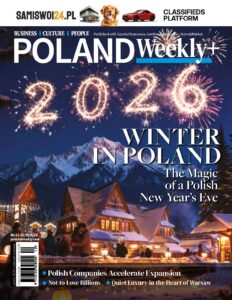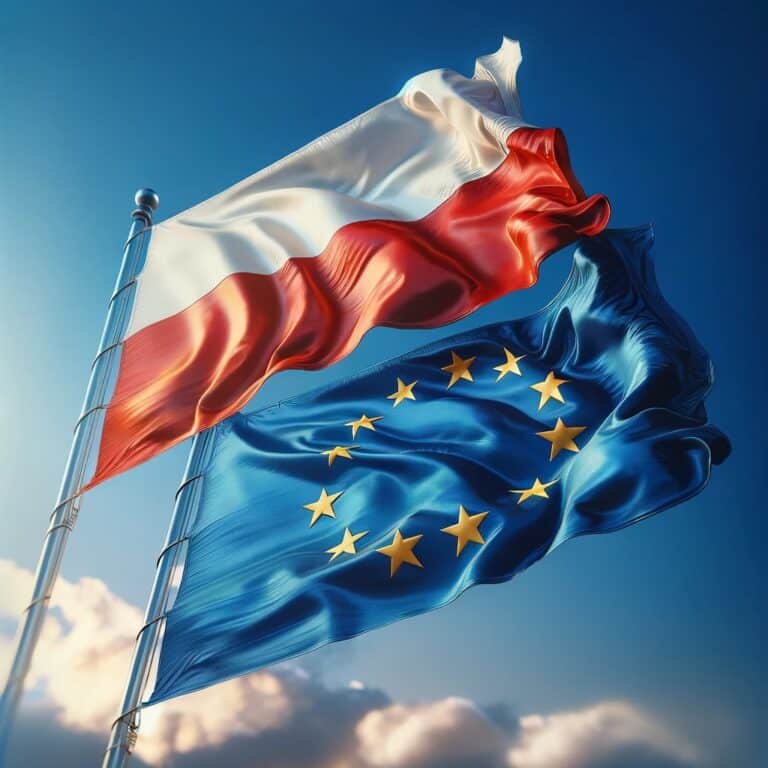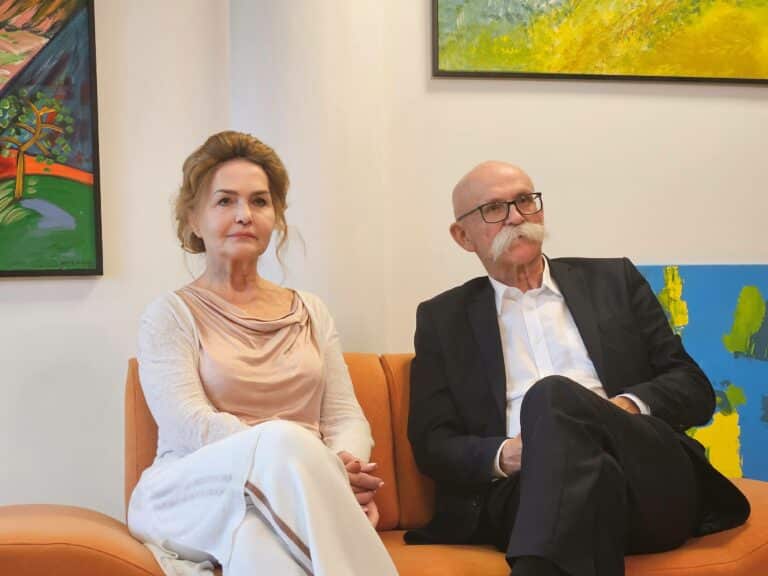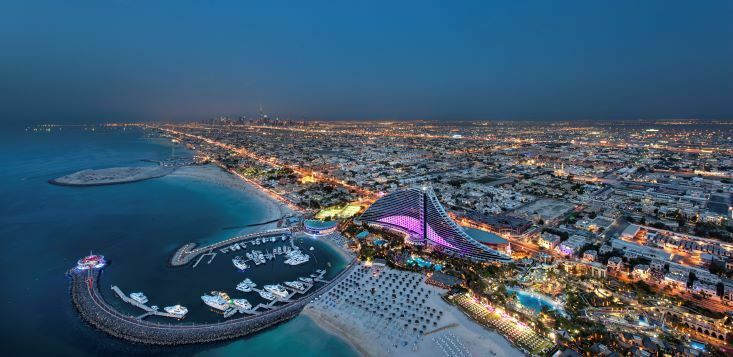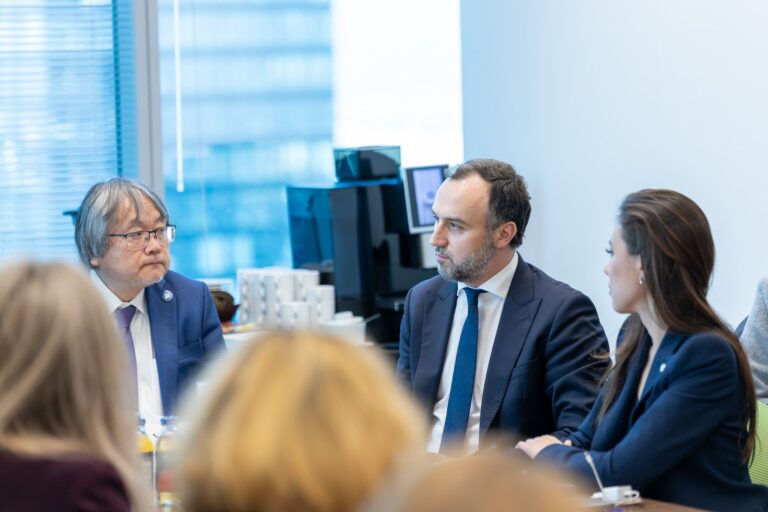The story of Polish capitalism through the prism of 30 years of American investment
Poles to a large extent like and appreciate America, these ties go back many generations. I will remember Tadeusz Kościuszko, one of the founders of the elite West Point Academy, and Kazimierz Pulaski, who fought in the US war of independence. The history of Poland, full of hard trials, has meant successive waves of emigration overseas. It is estimated that there are nearly 10 million people of Polish origin in the United States, and the Chicago Metropolitan Area alone is home to around 1.5 million. Currently, the assets of American investors operating in Poland exceed PLN 200 billion and companies operating on our market employ nearly 300,000 people.
America has always tried to support our independence efforts. During the era of Solidarity, one source of information was the Voice of America, broadcast from Washington, which was blocked by the security service of the People’s Republic of Poland. When Poland regained freedom in 1989 and the breeze of these changes caused the Berlin Wall to collapse and the post-war divisions set out at Yalta to be overcome, the time of a return to capitalism began. During this period, the first foreign investors appeared with wallets full of dollars. Due to hyperinflation at that time, average salaries amounted to only a few dozen dollars and were losing their value day-by-day. Empty stores in the country that had been ruined by communist governments were besieged by long lines of people waiting for deliveries of any kinds of goods.
No Internet or cell phones
It is only natural that investors who are willing to take high risks and quick returns look for new and uncertain markets first and many first business “adventurers”, like pioneers in the Wild West, have tried their luck here. The first representative offices of such companies appeared and with them pioneering advertising agencies. Lawyers learned on their own what a “company” was and tried to get hold of the edition of the 1934 Commercial Companies Code to help early investors. Even photocopying of documents at that time required a special permit. America was then idealized and known mainly from the movies. It appeared as a mythical country of prosperity, freedom and great developmental opportunities. At that time, there was as yet no Internet or mobile phones and the height of modernity was fax machines and the first PCs. The first mass access to the Internet appeared much later in the mid-1990s. The Marriott hotel was opened in Warsaw, which immediately became a synonym of luxury, and at the same time heralded the beginning of free-market changes. The hotel tower was like an island of wealth, a meeting place for business, visits by politicians and gangsters. The phenomenon of unemployment had been unknown in the People’s Republic of Poland, work was poorly paid, but compulsory. The beginning of the transformation meant unemployment and the need to retrain for millions of people to the new demands. The beginning of the 1990s was also the first McDonald’s in Poland, the grand opening of which took place in June 1992 in Sezam – at the intersection of Marszałkowska and Świętokrzyska streets in Warsaw, where today we have our brand new office, Centrum Marszałkowska. A moment later, rival Burger King appeared at Plac Konstytucji, which, apart from eating, offered an entertainment center in the form of video game machines.
The “American dream” in Polish
President George H.W. Bush paid his first official visit to Poland in July 1989. After a meeting with then Polish President Lech Wałęsa in Gdańsk, in a speech at the Monument to the Fallen Shipyard Workers, Bush senior congratulated Poles on their achievements, including “the first free elections in the new Poland” and referred to those in our country pushing reform. How prophetically he added that building a new, prosperous, Poland was not a matter of a year, but a generation, while emphasizing that it would not be an easy road.
“This is not the end of difficult times. Economic reform requires hard work and restraint before it brings benefits. It also requires patience and determination. But hard work is no stranger to Poles and they taught the whole world a lesson in determination,” Bush said.
The reforms completely changed the economic rules of the centrally managed country ruined by the communists. On the one hand, a weak state and its reformed structures, on the other, the Soviet army and a gigantic increase in crime. Polish capitalism was borne in great pain. The systemic changes initiated by the “Round Table” negotiations made it possible to start the first talks on Poland’s association with the European Community. Official negotiations began in December 1990 and ended with the signing of the Europe Agreement a year later. In 1990, at a meeting at the US Embassy in Warsaw, the act of establishing the American Chamber of Commerce, which has continued the pre-war traditions of the Polish-American Chamber of Commerce, was signed by representatives of 7 out of 20 American companies present at that time. The purpose of its creation was the need to support the development of Polish-American economic relations, to actively promote investments and to improve the investment climate. A year later, the chamber was accredited as an associate member of the United States Chamber of Commerce in Washington.
Democratization, visas and the Statue of Liberty
At that time, there were long lines in front of the American Embassy in Warsaw for visas. Compulsory learning of the English language appeared in the curricula of schools and universities and replaced Russian. However, there was a shortage of teachers as foreign language speakers easily got better jobs in the growing business sector. Poles could keep passports at home, previously issued only to selected people and periods of departure. More and more countries opened a visa-free regime for us. Working for an international corporation, I received an American visa without any major problems, entitling me to multiple trips. The 1992 cinema hit was “Naked Instinct” starring Michael Douglas and Sharon Stone. Inspired by a scene from the world’s most iconic club at the time, The Limelight – housed in an original Manhattan building – we thought little of buying weekend tickets for a flight from London to New York to visit this famous spot. Unfortunately, our plane was delayed six hours and at the airport JFK in New York was greeted by a dense fog. Despite the first jet lag, which seemed like an exotic bonus at the time, we didn’t manage to visit the well-known club until the next night. From the windows of the apartment of the famous hotel where Al Capone once lived, you could barely see even a few meters. I did not see the Statue of Liberty either, and the frosty Manhattan wind speeding up between the skyscrapers barely allowed me to walk around Central Park or to the famous “Museum of Modern Art” and a Broadway show. It all felt special, however. Poland, on the other hand, was undergoing transformation all the time, street trade appeared. The first mobile telephone network “Centertel” was established, which had coverage only in the centers of several large cities, and the smaller model (of the two offered) was the size of a brick. Most companies then used wireless devices, used to communicate through short text messages read from the display, the so-called Pager. Video rentals on VHS cassettes were also developing, and in Warsaw and the surrounding area, the first private television, “TOP Canal,” broadcast for two years without any consent. Its program featured the first commercials and foreign films.
In July 1992, Bush Sr. flew back to Poland to take part in the ceremonies connected with bringing the ashes of Ignacy Jan Paderewski to his homeland. Then he spoke at Castle Square in Warsaw in the company of President Lech Wałęsa. In his speech, Bush referred, inter alia, to the changes that had taken place in Poland after 1989. Summarizing the first three years of democratic transformation, he praised our country for undertaking “courageous economic reforms,” thanks to which Poland had gained “the respect and support of the whole world.” Moreover, he stressed, these reforms were working. Bush admitted that in many places and for many people, reforms bring “more pain than progress.”
“But we must carefully separate the effect from the cause. Today’s time of trial was not caused by private entrepreneurship, but by the persistent legacy of four decades of bad communist rule. I assure you: the path you have chosen is the right path,” he argued.
In April 1991, the first session of the Warsaw Stock Exchange was held in the former headquarters of the Polish United Workers’ Party (PZPR) central committee in Warsaw. Seven brokerage houses participated in it and only five companies were listed on the stock exchange at that time. During one session, 112 buy and sell orders were received, and the total turnover of the exchange was PLN 1,990, i.e. less than a round 2,000. In the same building, the Polish-American Enterprise Fund began operating, providing start-up capital to support the development of the Polish private sector. The American president declared that the US would allocate another $200 million for financial support for reforms. As he said, they should be allocated, inter alia, to support Polish exporters and banks and for loans for new enterprises.
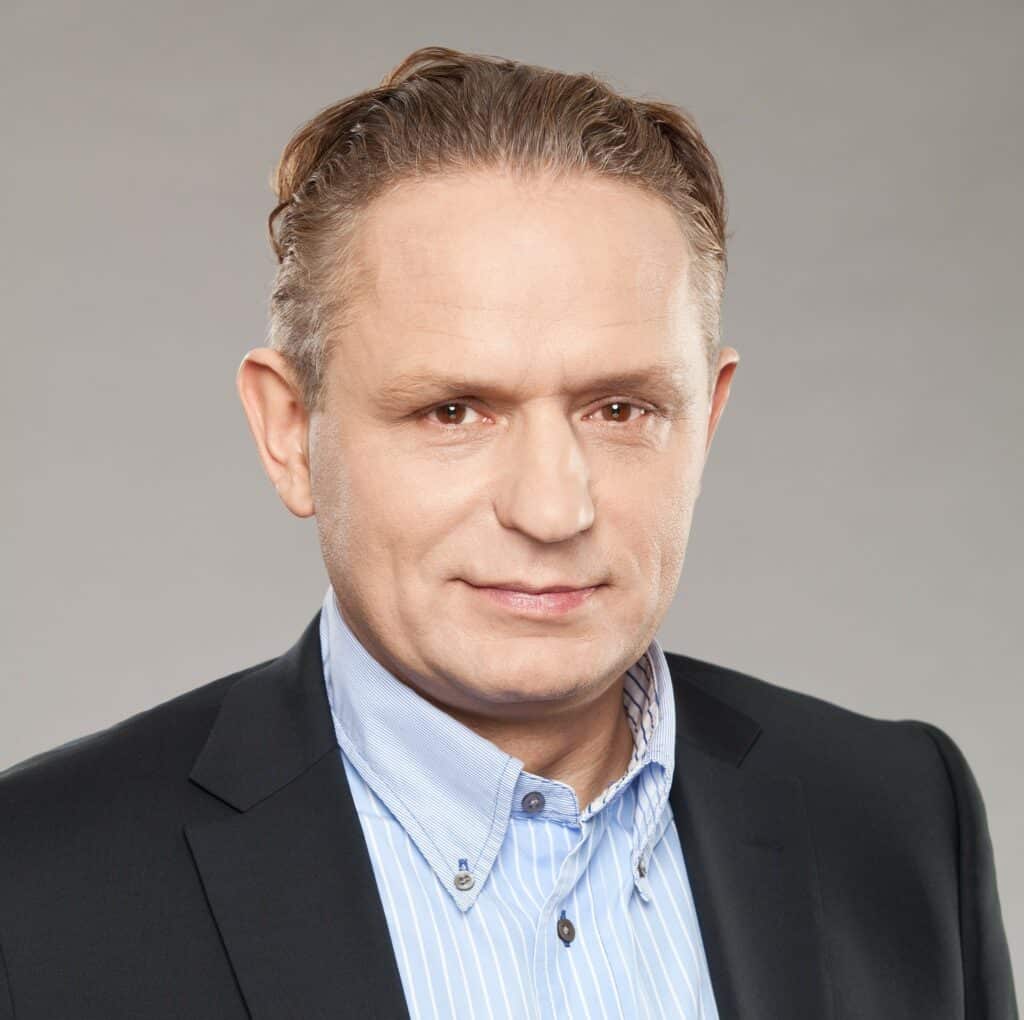
Grzegorz Tomasik, CEO & Co owner at Datus, former general director of IBM
“The PAFP loan program was an amazing experience, we financed the first private bakeries, butchers, carpentry workshops, car workshops in many small centers throughout Poland,” recalls Grzegorz Tomasiak, later general director of IBM Polska, who returned to the country at that time from a practice organized by AIESEC at Chrysler Motors in Detroit and started working for the Enterprise Fund.
“We taught future entrepreneurs the concept of Cash Flow & currency risk. Our subsequent visits gave us great satisfaction – loan applications, when we were looking at newly built or decorated objects from previously granted loans. In my next professional step at IBM I participated in projects that helped to take the next step in the development of Polish enterprises, i.e. computerization and the use of IT tools. My satisfaction is complemented by the fact that over time IBM has also become the largest investor in the IT industry in Poland, creating Competence and Development Centers,” Tomasiak says.
“Nothing about you, without you”
At that time, the process of Poland’s integration with the European Union also began. An application for membership was submitted in Athens in April 1994, which was approved by all Member States at the Essen Conference in December of the same year. It was an extremely difficult time for Poland, and economic reforms were turning out to be necessary, but also extremely painful. I remember the speech of President Bill Clinton during his visit to Poland in 1997 in Castle Square in Warsaw. This happened on July 10, two days after Poland, the Czech Republic and Hungary received an invitation to join NATO. Clinton referred to a commitment made during his first visit in 1994 regarding NATO enlargement in a speech to the Sejm, saying in Polish: “Nothing about you without you.”
“Your fate will never be decided by others. You will never be denied the right to freedom. Poland returns home,” Clinton said.
In March 1999, in Independence, Missouri, Foreign Minister Prof. Bronisław Geremek handed over to the US Secretary of State Madeleine Albright the signed act of Poland’s accession to the North Atlantic Treaty Alliance.
We built our capitalism over the following decades. Travel destinations changed as well, and more and more compatriots started to travel for tourism or science. On May 1, 2004, Poland became a member of the European Union. The lines for visas to the US disappeared and a visa-free regime soon cmae into force. I was able to visit the United States many times, discovering its beauty and diversity.
US presidents have visited Poland: George H.W. Bush (twice), Bill Clinton, George W. Bush (twice) and Barack Obama. On the other hand, Donald Trump said in 2017: “It is a profound honor to stand in this city, by this monument to the Warsaw Uprising, and to address the Polish nation that so many generations have dreamed of: a Poland that is safe, strong, and free.”
Balance of cooperation
Before the pandemic in March 2019, I visited the USA for the last time. This time it was the sunny hometown of Presidents George H.W. Bush and his son George Walker Bush in Houston. I was very impressed by a visit to the NASA Space Flight Center, as well as a meeting with Michelle Obama as part of the promotion of her book “Becoming.” When in December of the same year we celebrated the final of the fifth edition of the AmCham “30 under 30” program for young business leaders in Warsaw, no-one expected that the coming COVID-19 pandemic would overshadow celebration of the 30th anniversary of the Chamber’s operation in Poland, and the companies belonging to it. Instead of celebrating the anniversary, the Chambers in fact would offer numerous aid activities and actions.
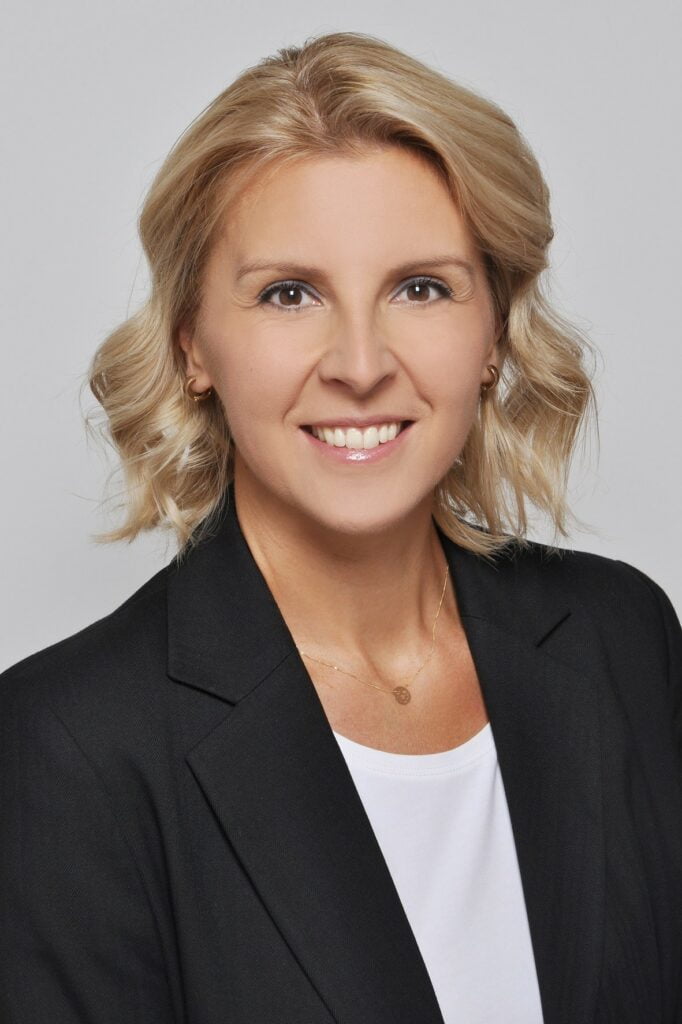
prof. Eliza Przeździecka, the Chief Economist of the American Chambers of Commerce in Poland
“Poland, as the leading EU economy and the most important market for American companies in the region of Central and Eastern Europe, is an attractive place for location and business development. The assets of American investors operating in Poland exceed USD 55 billion. American investments in Poland accounts over USD 26 billion, and more than half of that relates to industrial manufacturing” says prof. Eliza Przeździecka, the Chief Economist of the AmCham and author of the report “30 years of American investment in Poland.” According to prof. Przeździecka, support for the possibility of further growth and development of investor activity in Poland can be seen, among other things, in the fact that a large part of all investments are generated locally and remain in the country as reinvestments, creating new jobs and developing current activity with new functions.
According to the report, prepared in cooperation with KPMG, investments of companies with American capital account for 11% of the value of all foreign investments in our country. American giants from the technology and IT sectors have been successfully operating in Poland for years. These include Google, Microsoft, Cisco, Dell, Intel, Motorola, Worldpress and IBM, which has been operating in Poland for almost 30 years. These companies create research and development centers in our country, and their presence has had a positive effect on the level of technological advancement.
Plans for the future
We are an important partner for investors from the United States and our economic cooperation has developed a lot, especially after Poland joined the European Union. Therefore, it is worth returning to this summary, which shows the balance of 30 years of economic cooperation between our countries. Especially given it is only from the perspective of three decades that you can clearly see how much Poland has changed, what different realities we live in today and what potential for the future we have managed to achieve together. The directions of cooperation in the future also seem to be extremely important, as these goals may positively affect the further development of Poland.
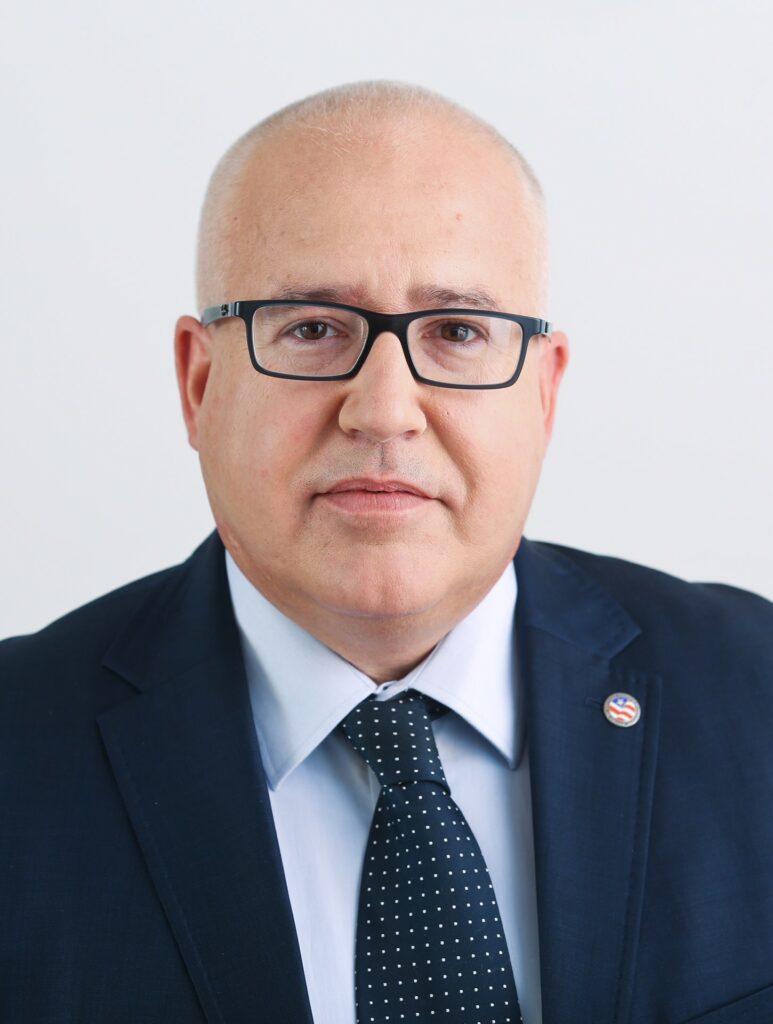
Tony Housh, the Chairman of American Chambers of Commerce in Poland
“Looking ahead, assuming the investment environment remains positive for US investors, in the coming decade there will be more US investment in high value added manufacturing and engineering investment, particularly in the aviation/aerospace and energy sectors,” says Tony Housh, the Chairman of American Chambers of Commerce in Poland.
“Digital services and cloud capabilities will drive a significant amount of business to Poland, from shared services centers to data analytics and research and on to new business models in Poland and beyond. Clean energy transformation is a key area for US-Poland cooperation in renewables and nuclear, which will drive a great deal of parallel investment. Another exciting area is the nearshoring of critical manufacturing from less politically reliable markets to Poland and other Three Seas Countries. These are among the sectors that will drive US Poland cooperation, which will also include biotechnology, gaming and defense modernization cooperation. It is going to be a dynamic decade ahead,” Housh says.
The AmCham is currently one of the largest international business organizations in our country, representing 327 companies from various industries. The organization is non-profit and apolitical. The “American dream” has come true, we travel to the USA mainly for tourism, business and research purposes. We can personally be fascinated by the cultural, technological and natural wealth of this diverse country.
Read also: Poland-US trade relations 2020, AmCham Report
